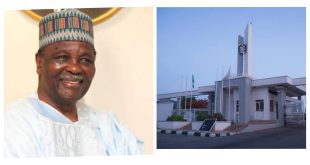By Taiwo Niyi, KWSRA
Over one hundred extension agents and farmers in Kwara State have been trained on the production of small ruminants and crop residue processing for improved utilisation by ruminants.
Participants from the state’s 16 local government areas attended the training programme, aimed at enhancing food security in Kwara and across Nigeria.
The programme was organised by the Kwara State Government through the State Livestock Productivity and Resilience Support Project (L-PRES), with support from the Centre for Dryland Agriculture (CDA) and the World Bank.
At the opening ceremony, Dr. Aliyu Sabi Abdullahi, the Minister of State for Agriculture and Food Security, noted the importance of extension agents and farmers in sensitisation activities.
Represented by the National Project Coordinator of L-PRES, Mallam Abubakar Sanusi, he noted that approximately 70 percent of animal feasibility studies are conducted through sensitisation, highlighting its significance in understanding animal needs.
Dr. Abdullahi urged extension agents to collaborate closely with farmers to improve livestock productivity.
He pointed out that Kwara State is one of the 20 states participating in the programme, which aims to boost productivity in animal production through collaboration with research institutes.
State Commissioner for Agriculture and Rural Development, Oloruntoyosi Thomas, announced plans to train over 1,000 extension agents within the next two years and to provide motorcycles to each local government for effective operation.
She praised the efforts of agricultural extension agents and farmers in improving productivity and food security.
The State L-PRES Project Coordinator, Mr. Olusoji Oyawoye, highlighted the importance of the workshop in achieving the administration’s food security goals.
He noted that conflicts between herders and farmers often arise from insufficient feed and water for animals and expanding crop farming activities.
Mr. Oyawoye encouraged participants to learn, share ideas, and network for a better livestock sector in the state.
Chief David Babalola, Principal Consultant at Synergy Impact Consultants Limited, advised participants to disseminate the knowledge gained during the training to boost the state’s socio-economic development.
Mr. Oyeleke Raufu, speaking on behalf of other participants, commended the programme’s organisers.
He noted that the training covered small ruminant rearing, low-cholesterol meat production, animal feeds using farm wastes, and other agricultural value chains.
The event featured the presentation of certificates of participation and an inspection of exhibited animal feeds.
 National Telescope national telescope newspaper
National Telescope national telescope newspaper



